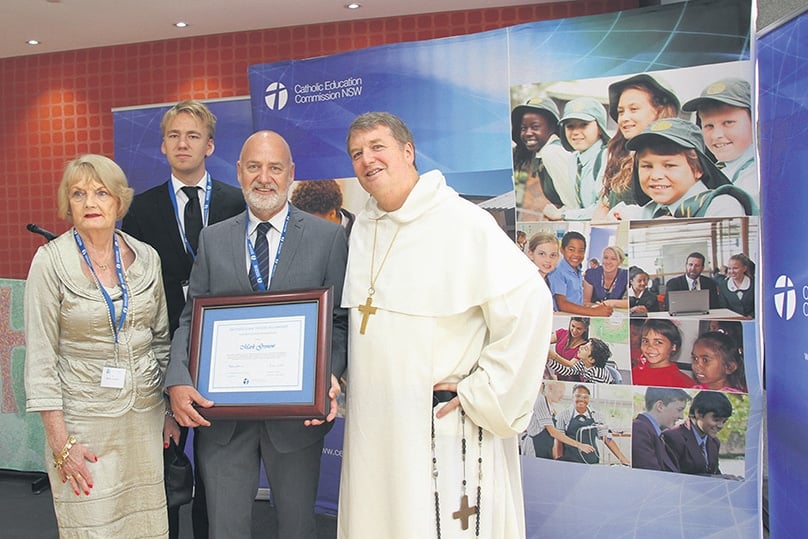
Learn formula. Open textbook. Do exercises. Test. Repeat.
Is it any wonder that kids have been turning off maths for some time now, mathematics researcher and 2014 Br John Taylor Fellowship recipient, Mark Gronow wonders
Subjects are “siloed”: nothing relates to anything else, much less to real world application, and systems are ranking-and-results orientated, not geared towards learning in any adventurous and engaging sense.
Completing his second masters in preparation for a doctorate, Mark says he is discovering that a deep understanding of the structure of mathematics might be as foreign to some mathematics teachers as it is to students.
And that’s of some concern because it means that teachers don’t have the means to teach creatively, even if they feel inspired and are willing to do so.
It’s a problem the former head of mathematics at Stella Maris College, Manly, is determined to make a contribution towards solving.
“We’re turning kids off mathematics at a very young age,” Mark says.
“It’s a downward spiral. Students are not studying mathematics at higher levels at schools; we’re not getting graduates in STEM (Science Technology, Engineering and Mathematics) subjects, causing problems for industry and governments, Gross Domestic Product, and future careers and so on.
“My research is looking at how we can reassess our teaching, making mathematics real and alive to kids. I’m looking at how well teachers actually understand that.
“Do they have a sense of understanding that you need to teach the deeper level of understanding of the concepts, as opposed to the “rules and formulas” approach?”
Outside of his research, he has his own ideas, aided by more than 30 years’ teaching experience, of why so many people utter the phrase: “I’m just not a maths person.”
People are effectively encouraged to develop fixed mindsets towards maths at an early age, he says.
It’s bad news, not only for struggling students, but also for those who excel.
“Kids (in primary school) who could remember rote-learned formulas were told ‘you’re good at maths’ and kids who couldn’t got the message that they weren’t,” Mark says.
“People who get into the pattern of saying ‘that’s what I’m good at and that’s what I’m bad at’ can’t move on …
“They need to realise that you get challenged by making mistakes, and the brain plasticity and neuroscience show [confirms that], particularly in mathematics.
“That’s when the thinking and neurons are growing.
“And the kids who are getting the seven times six right away; they’re not moving, they’re not growing.”
Research showed that fixed mindsets were particularly difficult to escape for girls, who were generally better at studying.
“In Years 7 and 8, they’re able to get 80 to 90 per cent through rote learning, but in Years 10 and 11, when the concepts get difficult, all of a sudden it’s: ‘Oh, my God, I can’t do it anymore’.”
Kids “don’t need extrinsic reward to do well”, he says.
“If they like something, they’re more likely to do well at it.”
Mark has just returned from a workshop on this subject in the UK, following conferences here and in the US, experiences that would not have been possible but for the $25,000 provided by the Br John Taylor Fellowship.
